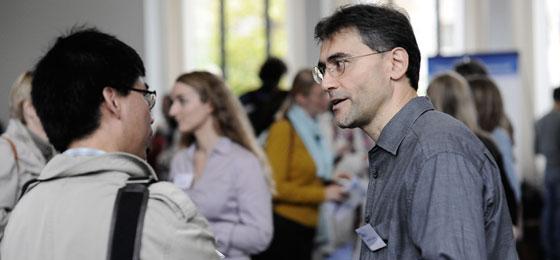Language policy

Linguistic diversity is a key feature of Switzerland and a benefit to the country. At the same time, English has become the dominant language in the world of science. As a research location, Switzerland needs to achieve a balance between its regional roots and ongoing internationalisation. The SNSF's language policy is guided by the need to find such a balance.
Linguistic diversity is alive and well at the SNSF. With science becoming increasingly globalised, the SNSF considered it necessary to formulate its language policy clearly and to systematically put it into practice.
Language policy of the SNSF (PDF)
The SNSF's language policy is pragmatic rather than dogmatic. It is based on principles that offer a flexible, but demanding framework for action:
- Linguistic diversity is an advantage for Swiss research and ought to be capitalised on. But research should be internationalised at the same time in order to enhance its quality and competitiveness. English is an essential "lingua franca" for science, but it is not sufficient in itself. While the SNSF promotes the use of English, it also seeks to ensure that Switzerland's science culture is not standardised as a result of globalisation.
- Institutional communications of the SNSF are made available in German, French and English as well as sporadically in Italian in order to fully inform researchers in Switzerland and abroad about its funding activities and offers. The scientific communication of research results gained in projects funded by the SNSF is published in German, French and increasingly also in English.
- Internally, the SNSF fosters the practice and development of a culture of linguistic diversity. It strives to achieve a balanced representation of different regions and languages within its bodies. Scientific communication with researchers and discussions in project evaluation bodies are generally conducted in English, except in the humanities and social sciences where English is used only in individual disciplines.
Linguistic diversity: added value for science
Language is an important tool for the production and transfer of knowledge. Both experience and academic studies have shown: linguistic diversity enhances the quality of research, be it in teams, in contacts between colleagues in the same field or within the scope of teaching activities and communication with the public. The researchers acquire wide-ranging language skills: excellence in their mother tongue, proficiency in English and knowledge of other languages. The SNSF therefore calls on the researchers and research institutions to make the most of the multilingual Swiss research environment.